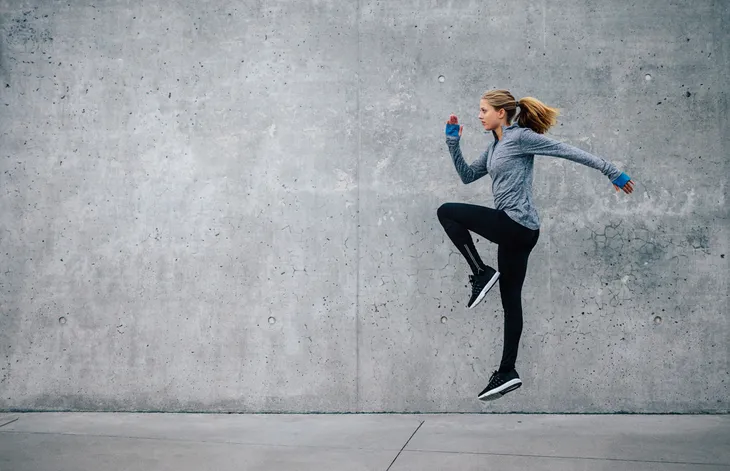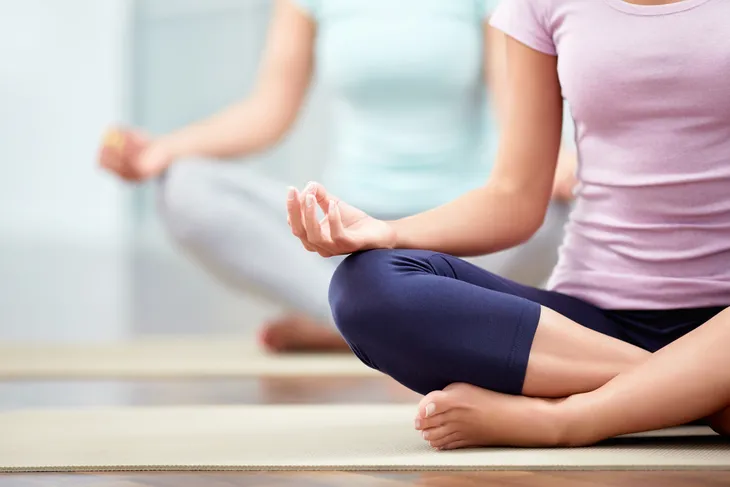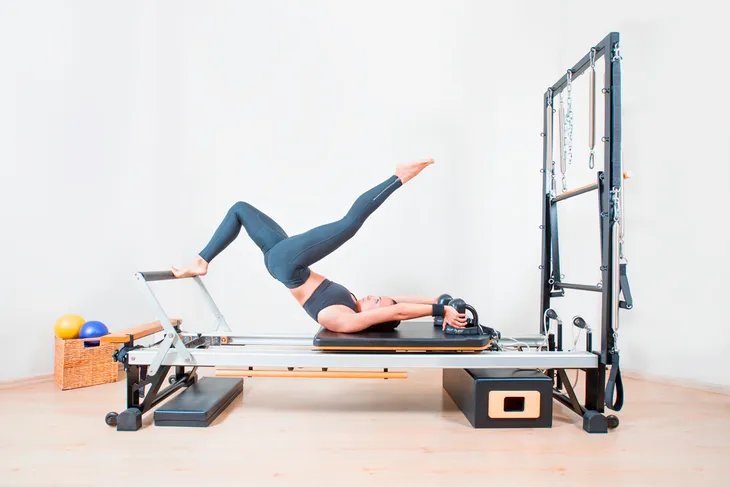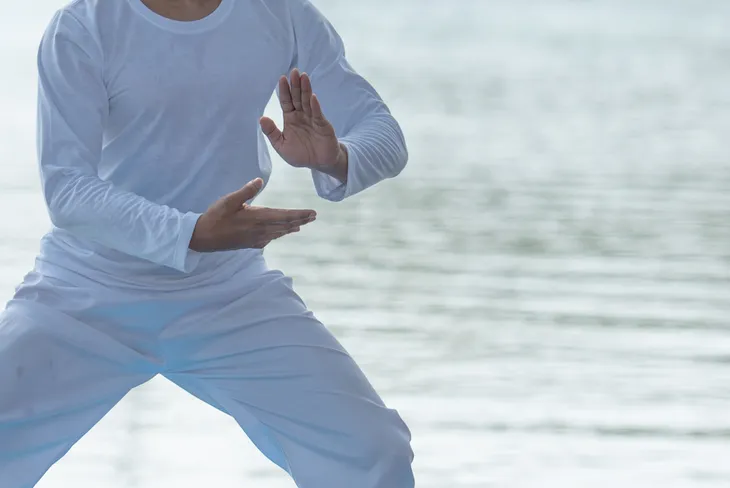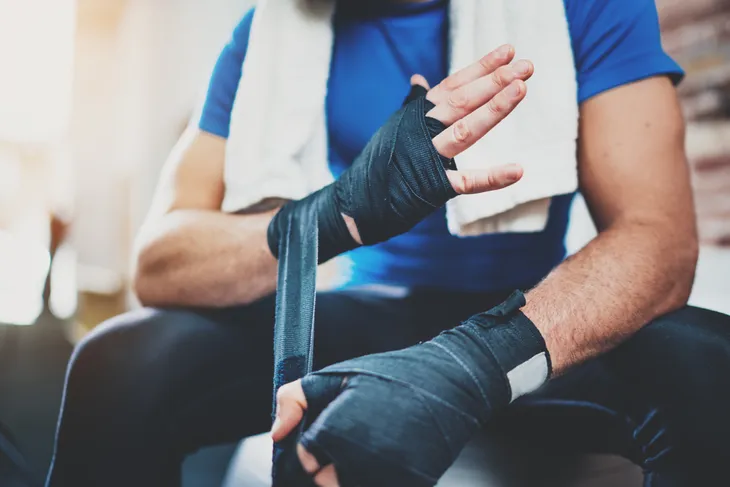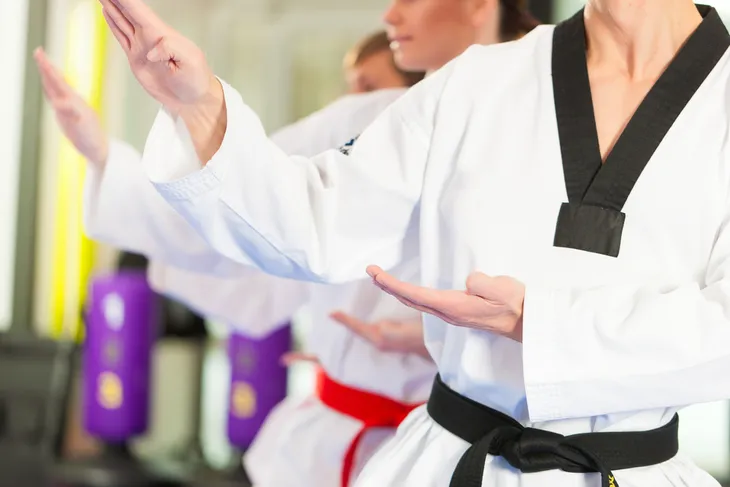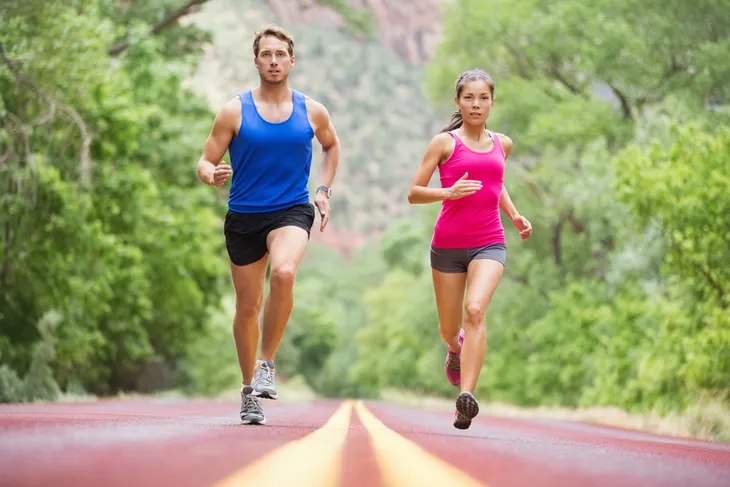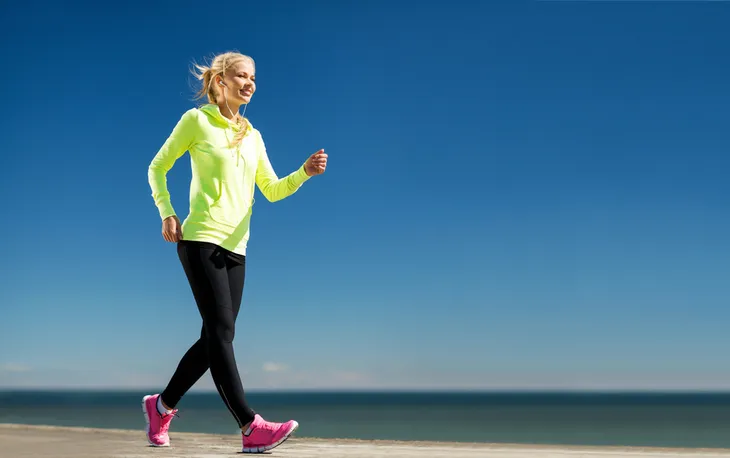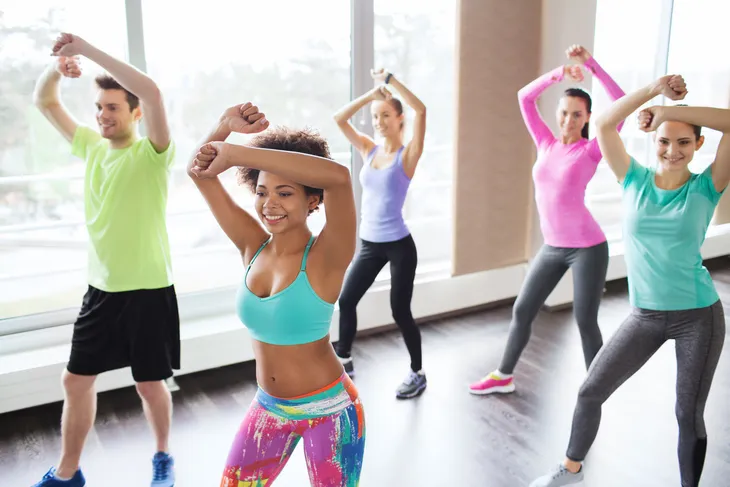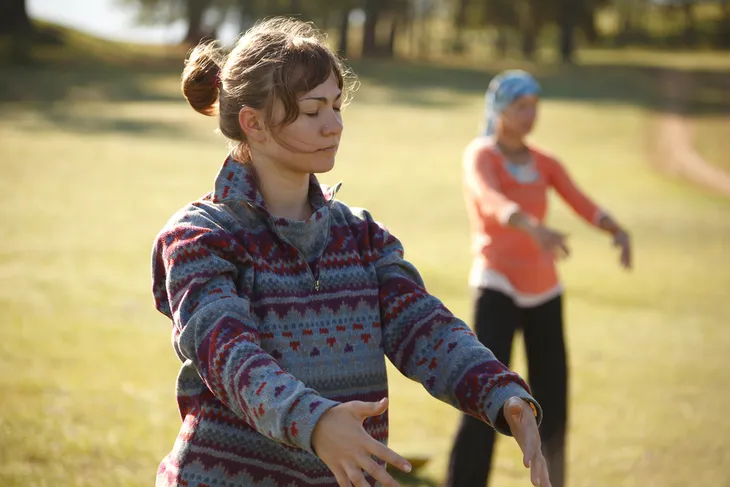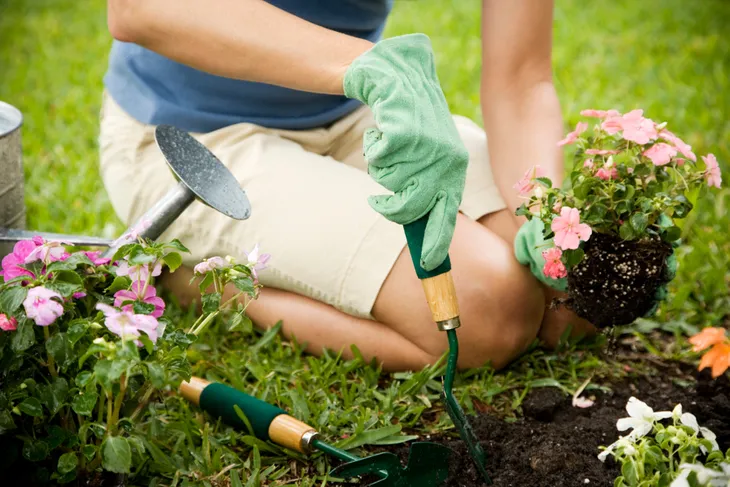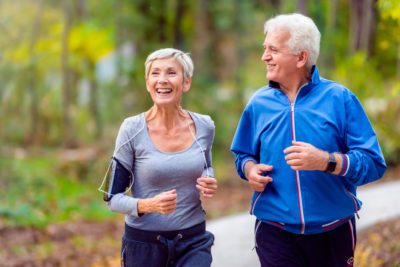Stress is pretty much a given in everyone’s life, whether it’s from work, money, relationships, health problems… you get the idea. However, what’s not a given in everyone’s life is regular exercise, which can help balance out the bad.
While being active can help you manage stress, certain exercises may be more effective than others for helping you relax while also getting the other benefits (namely building flexibility, balance and strength). Here are 13 exercises to try if you’re feeling especially stressed out…
1. Moving Experiences
EveryDay Health says that “high-energy activities” – namely aerobic exercises – can help you sweat out the stress. These exercises include running, dancing, and others (which we’ll get to).
These activities – which also include in-line skating and spinning – boost your heart rate and consequently release feel-good endorphins, which are “natural opiates” without the harmful side effects. You should check with your doctor before engaging in these high-intensity exercises, it adds.
2. Stretch Your Limits
Harvard Medical School suggests yoga as a way to keep your stress levels under control. The interesting thing is that you don’t have to master the meditation and breathing component of yoga to get the benefits – just the muscle stretches alone can make a difference, it adds.
However, it points to “full service” yoga as being the better option. On the flipside, breathing exercises (slow and deep breaths) without the movement can also drop your stress levels. “You can learn to control your respirations so they mimic relaxation; the effect, in fact, will be relaxing,” it adds.
3. More Power to You
Pilates is arguably a cousin of yoga, although Pilates focuses more on building strength and flexibility than finding spiritual enlightenment through movement.
However, Pilates can increase your mental awareness on top of the physical benefits, says The Huffington Post. It can release tension you hold in your muscles, and combined with deep breathing can send more oxygen to the brain, adding to your sense of well-being, it adds.
4. Find Your Chi
EveryDayHealth.com also compares tai chi, which is actually rooted in martial arts, to yoga. However, the origins of tai chi weren’t to learn to fight off an attacker; they were meant to fight off stress, says the source. It cites recent studies that show this “mind-body” practice has several mental and physical effects (aside from stress relief), including increasing bone density, lowering blood pressure, boosting immune function, and even providing relief from the symptoms of arthritis and fibromyalgia, adds the source.
It’s not just for the seniors you commonly see engaging in tai chi in the park (although it’s excellent as a low-impact exercise); anyone of any age can learn tai chi and practice indoors or outdoors, it adds.
5. Think Outside the Box
Get outside the box – literally. The Huffington Post notes just being outside and taking in nature is enough to drop your cortisol levels (a hormone associated with stress).
The source says “plenty of research” has proved the positive health benefits of getting outside. “Being active outdoors just might be the cure to all things stressful,” it adds. Whether you’re walking or riding a bike, taking time to admire nature (especially within states that have vivid color changes in foliage during this time of year) can have a big calming effect, it adds.
6. Kick Stress to the Curb
Kickboxing is a great way to burn off some stress (and even some anger without actually hitting an animate object). As EveryDayHealth.com explains, it involves controlled punching and kicking “carried out with discipline.”
Not only will you get your heart racing during a typical kickboxing session, but also doing it regularly can improve your balance, flexibility, and coordination, adds the source. And on top of that, it can be a lot of fun and a social connection with others looking to boost their activity.
7. Gain Skill, Lose Stress
Why not take kickboxing up a notch, and learn a martial art? EveryDay Health explains learning a martial art – it could be Krav Maga, karate, judo, tae kwon do, kung fu, ju-jitsu – is a great way to stay active, burn off stress, and learn some self-defense techniques.
Learning the finer points of martial arts can help sharpen your focus, your reflexes, your balance, and your strength, and you’ll probably feel a lot safer walking around at night knowing you could judo throw someone who tried to get in your face.
8. Team Up Against Stress
EveryDay Health also says joining a team sport can have a big benefit, other than having a bunch of people to high-five after a successful outing. It says you get a “double dose of stress relief” from team sports – you can have fun with people you care about, while working up a sweat and releasing those yummy endorphins.
Suggested sports to take part in include football, basketball, or soccer – and it doesn’t have to be an organized league. Just call up some friends or family to get a match going, it says. “Exercising with friends or co-workers can also motivate you to push yourself a little harder in order to stay competitive,” it adds.
9. Give Stress a Good Run For Its Money
Running is not for everyone; it sometimes requires getting up before work to take advantage of cooler air and less busy streets, and you should invest in the proper gear to prevent injury. That aside, it can boost your mood by creating “lasting” changes in neurotransmitters including serotonin, says Health.com.
This also means it might be beneficial to those that suffer from depression, as serotonin has a strong link, it adds. Other benefits of regular running include calorie burning, reduced food cravings, and lowered chance of heart disease, it adds. And let’s run another thing by you: hitting the trail or sidewalk just 5-minutes a day might even extend your life, it adds.
10. Just Walk It Off
We get it – not everyone is lacing up their trainers to beat their personal best times, or add another mile to their running route each week. Many times, a good brisk walk will do the trick, and it’s also less impactful on joints (and therefore has less chance of injury).
“You don’t need to run for miles to enjoy the stress-busting benefits of exercise – moderate-paced walking can reduce tension and anxiety,” says the Huffington Post. It also notes it can “put your brain in a meditative state,” especially when walking through nature or a park.
11. Dance Around Stress
Dancing is fun and also fun to learn, and it can help you improve coordination, flexibility, and balance while also keeping stress off the dance floor. However, Shape points to one type of dancing in particular for blowing off stream – the “trance dance.”
This type of dancing is rooted in shamanic and eastern cultures, says the source, “and has been used for centuries for various rituals and spiritual passages.” You don’t have to learn a choreographed routine; it’s more of a freestyle exercise that lets you dance like nobody’s watching.
12. Move, De-stress, Repeat
Shape also mentions another relaxation-promoting exercise called Qi Gong, which it says is an ancient Chinese art form focusing on repeating one movement at a time (as opposed to tai chi, which is a series of movements).
It says this exercise is designed to “cultivate the spirit and promote healing, health, and awareness through visualization, breathing techniques, and repetition of specific ‘energy flowing’ movements.” Sounds pretty relaxing to us.
13. Sow Your Wild Weeds
You may not think of gardening as an exercise, but Huffington Post includes it in its list of best workouts to beat stress. It cites MindBodyGreen.com, which explains that just 30-minutes or so of gardening can burn up to 300-calories.
What’s more is that it also cites a study from the Netherlands that shows gardening can create a more positive mood, and “promotes relief from acute stress” better than other leisure activities. You should do some stretching before a gardening session, it warns.

